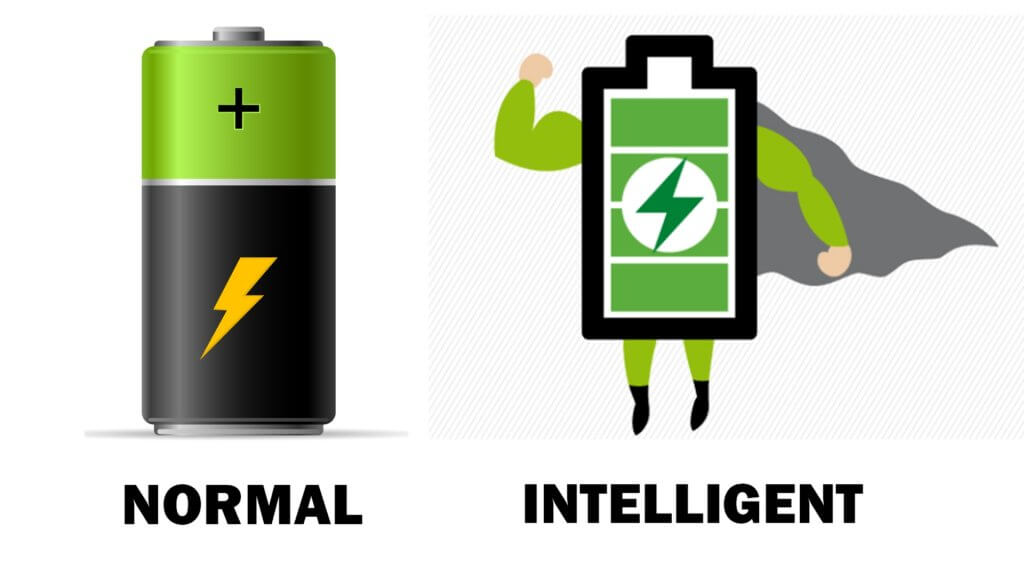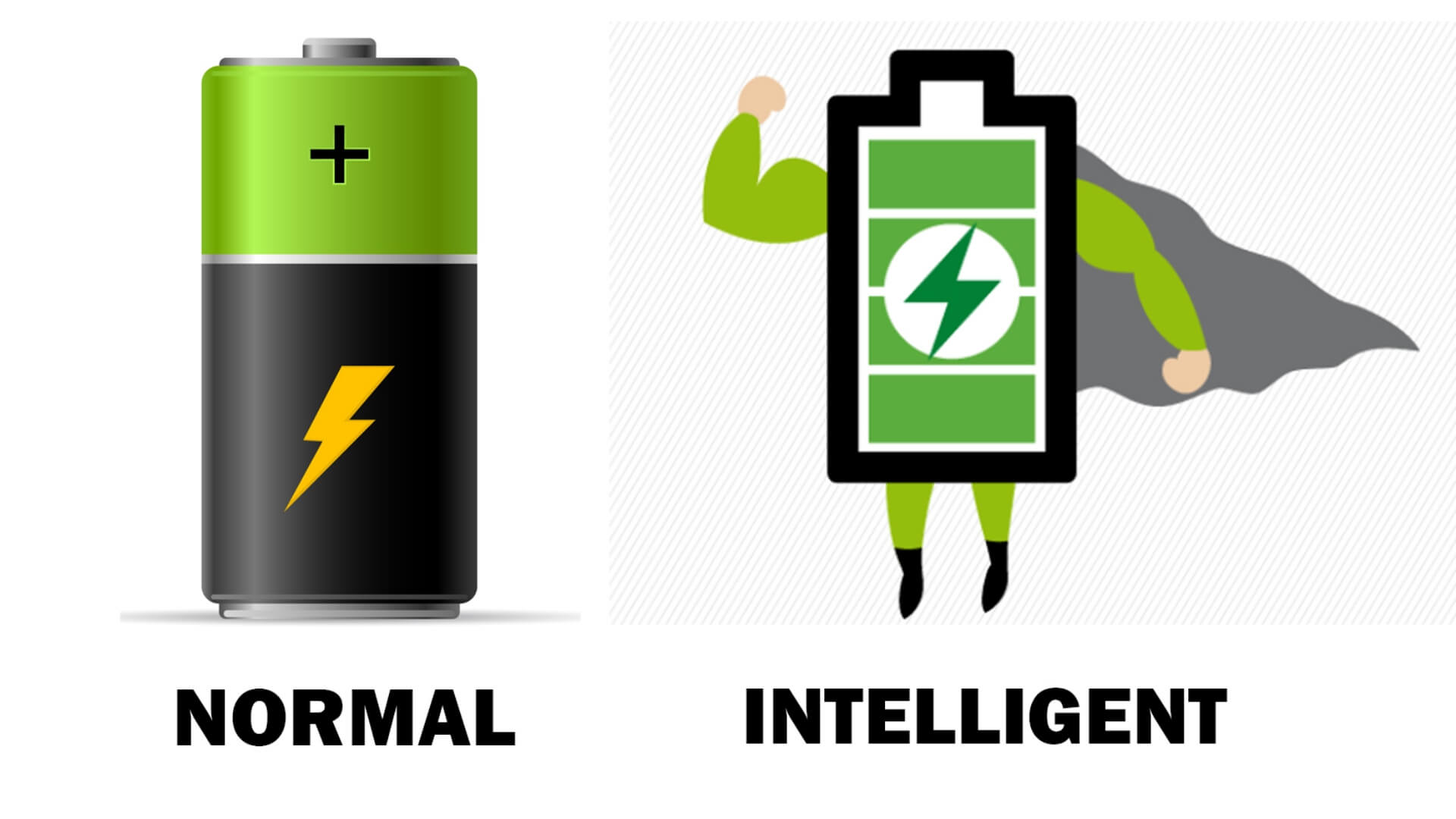
In 2022, the global market size for battery management systems was USD 7.8 billion and is projected to reach a whopping value of USD 55.1 billion by 2032 with a compound annual growth rate of 19.5%. This opens up huge potential for the adoption of intelligent battery systems.
Let’s take a look at understanding the concept of battery management, the challenges and limitations of traditional battery management methods, and the role of intelligent battery systems. We will also look into the impact of key technological innovations on intelligent battery management and real-world examples of intelligent batteries.
Understanding battery management
Battery management is an important part of modern energy storage systems that ensures batteries have maximal performance with a long lifespan. The evolution of battery management systems has resulted from the need to face the challenges of traditional methods and instead adopt intelligent battery management methods.
Key components of a typical Battery Management System (BMS) include the following:
- The Battery Monitoring Unit (BMU) measures key values like voltage, current, and temperature to ensure the safe use of batteries.
- The Cell Balancing Circuit is responsible for preventing imbalances in the voltage levels of battery cells.
- The Temperature Monitoring and Control monitors the temperature of the battery
- State of Charge (SoC) Estimation uses data to help users to gauge the energy left in the battery.
- Safety features in BMS include over-current protection, overvoltage protection, and under-voltage protection in order to guard against harm to the battery systems.
Some challenges and limitations of traditional battery management methods are:
- The single cells in aging batteries usually have different capacities and aging rates which results in an imbalance in cells.
- There is usually a faulty estimation of the State of Charge (SoC) due to reliance on simple voltage-based calculations.
- Traditional methods usually possess a limited capacity to provide detailed fault diagnosis of battery cells which hinders timely intervention to critical issues.
On the other hand, intelligent battery management systems have advanced State of Charge (SoC) estimation, sophisticated cell balancing, enhanced fault diagnosis systems, and can conduct real-time control of battery parameters like temperature, voltage, and current.
Unlocking battery efficiency via intelligent battery management
Battery intelligence optimization is changing the field of battery management by unlocking the untapped potential of batteries to extend battery life, enhance safety and optimize battery performance. Battery intelligence experts combine best-in-class AI, electrochemistry, and real-world battery systems experience to maximize the potential of all types of batteries. Let’s take a look at how experts are revolutionizing intelligent battery management.
- Real-world battery-domain expertise
One key success factor is that battery optimization experts must have extensive systems engineering and battery domain expertise gotten from lots of hands-on experience. The insights from these experts will help create software and solutions that will assist battery users develop battery management strategies like battery heat management, fault detection, and maximizing charging and discharging cycles.
Data gathered from practical experience enables battery intelligence solutions providers to create optimal battery systems that overcome the common issues of traditional battery management and facilitate the development of intelligent batteries
- Targeted artificial intelligence (AI) and machine learning (ML)
Artificial intelligence and machine learning principles are used to process huge data gotten from battery management systems in order to make accurate analyses and real-time decisions. Also, ML-driven Digital twin technology is crucial to the smooth operation of battery management systems. This simply refers to the act of creating virtual replicas of real-life batteries in order to test different scenarios and optimize battery performance.
Combining AI with ML-driven digital twin technology reveals a lot of insights that help to optimize battery performance and extend battery life.
- Understanding of electrochemistry
With an understanding of batteries’ chemical processes, solutions providers can create more accurate intelligent battery systems. Academic expertise in electrochemistry reveals insights into the degradation of electrodes, electrolyte composition, and diffusion of ions which helps to create and refine strategies for efficient battery management. The knowledge of electrochemistry helps mitigate various risks and ensure longevity and optimal battery performance.
Real-world applications
Many industries now apply the principles of intelligent battery management systems to produce more efficient and effective products. Some real-world applications of intelligent batteries are:
- Electric vehicles: The batteries of these vehicles utilize intelligent battery methods that ensure maximal performance and longevity of battery life. Users can view accurate measurements of the State of Charge, voltage, current, and temperature of the electric vehicle’s battery.
- An uninterruptible power supply (UPS) is a reliable source of backup power when there is an outage. Intelligent battery systems use advanced fault diagnosis systems to predict failures that may hinder the UPS from delivering power when needed.
- Renewable energy storage: Batteries are used to store energy from renewable sources like solar, hydro, biomass, and wind. Intelligent battery management systems ensure that stored energy is effectively utilized during the repetitive charging and discharging processes.
- Aviation and aerospace: Air travel is a critical journey that requires a lot of caution. Intelligent battery management is used to monitor the health of the aircraft battery by showing indicators that read the temperature, voltage, and State of Charge at all times.
- Intelligent battery systems are also applicable to other industries including power backup for telecommunications and optimal batteries for medical devices:
Unleashing the potential of intelligent battery management
Battery management is evolving from traditional methods to include intelligent battery management systems which are designed to overcome the challenges and limitations of traditional battery management. As a result of advancements in technology, intelligent battery systems now have enhanced fault diagnosis systems, an advanced state of charge (SoC) estimation, and real-time control of battery parameters like voltage, temperature, and current.
In addition, innovations like advanced sensor technologies, cloud computing, edge computing, and the Internet of Things (IoT) are shaping how intelligent battery systems function. It is important to note that intelligent battery management is not an abstract concept and it has real-world applications in electric vehicles, uninterrupted power supply (UPS), and renewable energy storage.





















